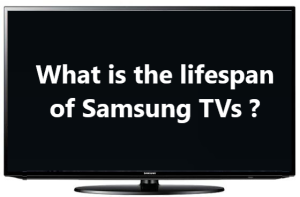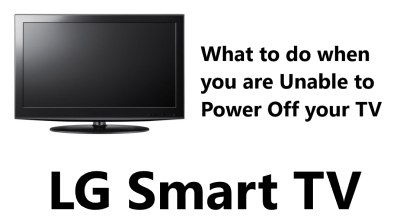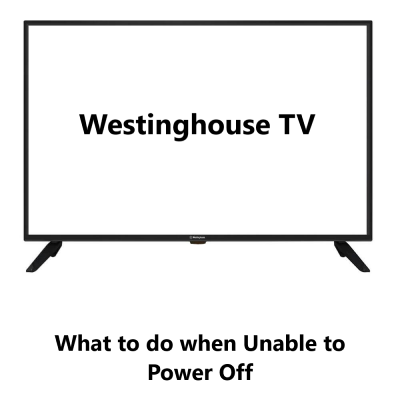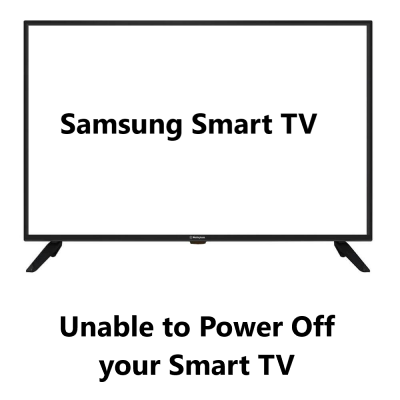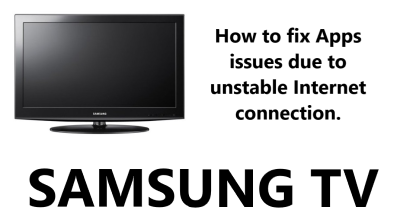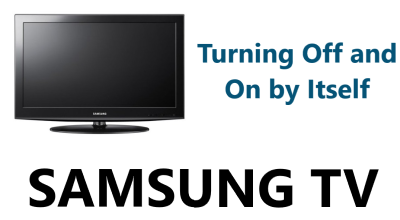What is the lifespan of Samsung TVs ?
Samsung TVWhen it comes to televisions, Samsung offers some of the best models on the market. But, like any other appliance, televisions don't last forever.
So, how long do Samsung TVs last ?
Generally, Samsung TVs last for 8-10 years with proper care and maintenance.
However, there are several factors that can affect the lifespan of a Samsung TV, such as usage, environment, and maintenance:
- Usage: The amount of usage is the most important factor in determining the lifespan of a Samsung TV. If you use your TV frequently and for extended periods of time, then it won't last as long as one that is used sparingly.
- Environment: The environment where your Samsung TV is located also affects its lifespan. If you place your TV in an area with high humidity or direct sunlight, then it won't last as long as one in a cooler, shaded area.
- Maintenance: Regular maintenance is essential to keep your Samsung TV in good condition and extend its life. This includes dusting or wiping down your TV periodically, cleaning the ports and connections, and keeping it away from moisture and heat.
- In addition to these factors, the type of Samsung TV you own also affects its lifespan. Generally, newer models have longer lifespans than older models. If you purchase a new Samsung TV, you can expect it to last 8-10 years with proper care and maintenance.
Table of contents [Show]
- 1 How Durable Are Samsung TVs ?
- 2 What's the average life span of a modern television set ?
- 3 Is it worth repairing my TV ?
- 4 How to Make Your Samsung TV Last Longer ?
- 5 Do Samsung TVs Last Longer than Average TVs ?
- 6 Does Brand Affect the Lifespan of a TV ?
- 7 Are Samsung TVs Good for Video Games ?
- 8 Can Video Games Ruin My TV ?
- 9 How Long Is the Warranty on Samsung TVs ?
- 10 What Are the Most Popular Samsung TV models ?
- 11 When Should I Replace My Samsung TV ?
- 12 How Much Does It Cost to Fix a Samsung TV ?
- 13 Are Samsung TVs prone to breaking ?
How Durable Are Samsung TVs ?
Samsung TVs are known for their reliability and durability. With their high-quality components and long-lasting build, Samsung TVs are a popular choice for those looking for a long-term investment.
But just how durable are Samsung TVs?
The first thing to consider is the type of TV you're buying. Samsung produces a range of TVs, from entry-level models to high-end OLED TVs. Generally, the higher the quality of the TV, the more likely it is to be durable. Samsung's QLED TVs are renowned for their durability, thanks to their strong components and well-built construction.
Durability is also affected by the environment in which the TV is kept. TVs should be kept away from direct sunlight and moisture, as these can damage the internal components. Similarly, dust and dirt can cause the TV to overheat, so it's important to keep the TV clean.
Fortunately, Samsung TVs are designed to be durable even in extreme conditions. All Samsung TVs are tested in a range of temperatures and humidity's, to ensure they are able to withstand any environment. Samsung also offers a range of warranties, so you can be sure that your TV is covered in case of any unexpected issues.
What's the average life span of a modern television set ?
These days, televisions are a staple in almost every home. But how long do they last? How long can you expect your TV to last before needing to upgrade?
The average life span of a modern television set is approximately 8-10 years. While this may seem like a long time, it is still important to keep in mind that TVs are made with changing technology and they can become outdated quickly.
The lifespan of a TV can also depend on how much it is used, as well as the quality of the product. If you frequently watch a lot of television and use your TV for gaming, it is likely that your TV will have a shorter lifespan than if you only watch a few shows a week. Similarly, if you buy a cheaper, lower-quality TV, it will likely not last as long as a more expensive option.
In addition to the quality of the TV and how much it is used, its environment can also impact its lifespan. If you keep your TV in a hot, humid environment, it can cause damage to the components and shorten its lifespan. Similarly, if you place your TV in an area with a lot of dust, it can cause the internal components to overheat, which can lead to premature failure.
It is also important to keep your TV clean. Dust can build up and cause overheating, which can reduce the lifespan of your TV. If your TV starts to make strange noises or show signs of malfunction, it is important to get it checked out immediately by a professional.
To ensure the longest lifespan of your TV, it is important to purchase a high-quality product and make sure that it is kept in an ideal environment. Additionally, regular maintenance is key to making sure that your TV is running properly and not experiencing any problems. With proper care, the average lifespan of a modern television set can be extended significantly.
Is it worth repairing my TV ?
When it comes to deciding whether or not to repair your TV, there are a few factors to consider. Depending on the age and type of the TV, it could be worth it to repair it – or it might be more cost-effective to just buy a new one.
- First, you'll need to assess the cost of the repair. Even if the cost of the repair is less than the cost of a new TV, it may still not be worth it if the parts needed to fix the TV are no longer available or if the TV is very old. If the repairs are possible, you should still compare the cost of the repair to the cost of a new TV – and factor in the potential that the same issue could arise again.
- Second, you should consider how often you use your TV. If you use it daily, it may be worth investing in a repair. If, on the other hand, you only use it occasionally, you might be better off just replacing it.
- Finally, if you are considering a repair, it’s important to find a reputable repair shop with a solid reputation. Taking the time to research your options and look for reviews can help ensure that you get a quality repair.
In the end, it's important to weigh the cost, age, and usage of your TV to determine if a repair is worth it. Taking the time to do your research can help you make an informed decision.
How to Make Your Samsung TV Last Longer ?
With the right care and maintenance, you can ensure that your TV will provide you with years of entertainment.
Here are a few tips to help you make your Samsung TV last longer:
- Keep it Clean – Over time, dust and dirt can accumulate on the surface of your TV and cause it to overheat. Make sure to regularly clean your TV with a soft and dry cloth. Avoid getting any liquids on the screen or any other components of the TV.
- Protect from Heat – Heat is one of the biggest enemies of your TV. Make sure to keep your TV away from direct sunlight and other sources of heat. Keep your TV in a cool and dry place.
- Avoid Overloading – Make sure not to overload your TV with too many devices. Too many devices can put a strain on the TV and reduce its lifespan.
- Unplug When Not in Use – When you’re not using your TV, make sure to unplug it. This will help reduce the amount of electricity it consumes and help it last longer.
- Upgrade Firmware – Samsung releases regular firmware updates for their TVs. Make sure to keep your TV up to date with the latest firmware. This will help ensure that your TV is running optimally and is protected from any potential security vulnerabilities.
Do Samsung TVs Last Longer than Average TVs ?
Many consumers are wondering: do Samsung TVs last longer than average TVs? The answer is yes, but it depends on several factors:
The first factor is the type of TV. Samsung offers a wide range of televisions, from basic LCD models to higher-end OLED and QLED models. The higher-end models tend to have a longer lifespan than the basic models, due to their higher quality components and longer warranties.
The second factor is how the TV is used. If you consistently use the TV for watching movies, playing games, and streaming content, it will likely last longer than if you rarely use it or only watch it for a few hours at a time.
The third factor is how well you take care of your TV. Regularly cleaning the screen and wiping down the exterior will help keep dust and dirt from clogging air vents and causing the TV to overheat. Additionally, using a surge protector to protect your TV from electrical surges can help prevent premature failure.
Finally, the fourth factor is the quality of the components used in the TV. Samsung is known for using high-quality components in their TVs, which helps them last longer than average TVs.
Overall, Samsung TVs tend to last longer than average TVs. This is due to their higher quality components, longer warranties, and better care and maintenance. If you want a TV that will last you many years, Samsung is a great choice.
Does Brand Affect the Lifespan of a TV ?
If you're in the market for a new television, one of the things you'll want to consider is how long the TV will last. While there's no definitive answer to this question, there are a few factors that can affect the lifespan of your TV, such as the brand.
When it comes to brand, the most important factor to consider is the manufacturer's reputation. Generally speaking, well-known, trusted brands tend to offer higher quality products that are built to last. These brands also typically provide better customer support and more warranties for their products. So, if you want a TV that will last for years to come, it's a good idea to invest in a brand with a good reputation.
Another factor to consider when it comes to brand is the technology used in the TV. For example, some brands may use more up-to-date technology that puts less strain on the TV's components and can help it to last longer. So, if you’re looking for a TV that will last a long time, it's a good idea to look for one with the latest technology.
Finally, the price of the TV can also affect its lifespan. Generally speaking, higher-end TVs tend to last longer as they are typically made with better components and are of higher quality. So, if you can afford it, it's worth investing in a more expensive TV that will last longer.
Overall, the brand of a TV can have a significant impact on its lifespan. If you want a TV that will last a long time, it's a good idea to invest in a well-known, trusted brand with the latest technology and a higher price tag.
Are Samsung TVs Good for Video Games ?
If you're a serious gamer, you'll want to make sure you get the perfect TV that suits your gaming needs. Samsung TVs are a popular choice for gamers, and for good reason. Not only do they have the latest technology and features, but they also offer great picture quality and smooth gaming performance.
First and foremost, Samsung TVs come with the latest technology. This means that they are able to support the latest video game consoles, such as the Xbox One and PlayStation 4, with ease. They also feature input lag reduction technology, which helps reduce the time it takes for the TV to respond to your button presses. This is especially helpful when playing fast-paced games like first-person shooters, where every millisecond counts.
In addition to technology, Samsung TVs offer great picture quality. Their TVs feature 4K resolution, HDR support, and a wide color gamut, which make your games look more detailed and realistic. The TVs also come with advanced motion control, which helps reduce motion blur and make fast-paced action scenes look smoother and more fluid.
Finally, Samsung TVs offer smooth gaming performance. Their TVs come with a special gaming mode, which helps reduce input lag and improve responsiveness. This mode is especially useful for competitive gamers who want to get every edge they can in their games. The TVs also come with Auto Game Mode, which automatically optimizes the picture settings for an optimal gaming experience.
In conclusion, Samsung TVs are a great choice for gamers. They feature the latest technology, great picture quality, and smooth gaming performance. Whether you're an occasional gamer or a competitive one, you'll be sure to find a Samsung TV that meets your needs.
Can Video Games Ruin My TV ?
Video games have been a part of our lives for many years now, with their popularity continuing to rise. However, while they can provide hours of entertainment, they can also have a negative impact on our TVs.
When playing video games, there is a lot of strain put on the TV. The graphics, sound, and motion of the game can put a lot of stress on the TV and its components, causing them to overheat or even break down. This can cause costly repairs or even a total replacement of the TV.
It is also important to remember that TVs have a limited lifespan. Though playing video games won’t cause the TV to suddenly die after a few hours, the strain can shorten its life span. This is particularly true if the TV is older and not built to handle the load of modern video games.
Another problem caused by video games is burn-in. This is when an image is permanently “burned” into the TV screen. This is typically caused by playing the same game for long periods of time, as the same image is displayed over and over again. This can cause permanent damage to the TV, which can be expensive to repair or replace.
Finally, it is important to remember that TVs are not made to be used as monitors. While some TVs are capable of being used as a monitor, it is not recommended as it can cause permanent damage and reduce the lifespan of the TV.
It is important to remember that video games can have a negative impact on our TVs. Taking proper care and not forgetting to turn off the TV when not in use can help to reduce the strain on the TV and extend its lifespan.
How Long Is the Warranty on Samsung TVs ?
When it comes to investing in a new television, one of the most important factors to consider is the warranty. After all, you want to make sure your purchase is protected in case it breaks or malfunctions.
When it comes to Samsung TVs, the warranty depends on the type of TV you're buying. Most Samsung TVs come with a one-year limited warranty that covers the repair or replacement of defective parts. This warranty applies to manufacturing defects only and does not cover normal wear and tear.
Some Samsung TVs come with extended warranties. These usually range from two to five years and cover the same defects as the one-year warranty. Additionally, they may also cover accidental damage caused by you or your family.
For some Samsung TVs, you may also be able to purchase an extended warranty with the purchase of the TV. This is usually an additional cost, but it can provide peace of mind knowing that your TV is covered for an extended period of time.
It's important to read the warranty information that comes with your Samsung TV so you understand the terms of your coverage. You should also read the manufacturer's instructions for use and maintenance to help ensure your TV lasts as long as possible.
Overall, the warranty on Samsung TVs can range from one to five years, depending on the type of TV you buy and if you purchase an extended warranty. By understanding the terms of your warranty and taking proper care of your TV, you can ensure your purchase is protected for years to come.
Samsung is one of the world's leading consumer electronics companies and they make some of the most popular television models in today’s market. With a wide range of sizes, features, and prices, there is a Samsung TV model to fit virtually any budget and lifestyle.
For those looking for a basic television experience, the Samsung TU7000 is a great choice. This entry-level model offers a slim design, 1080p HD resolution, and an energy-saving Eco mode for a low price. It also has two HDMI ports, so you can connect your gaming consoles or streaming devices easily.
If you're looking for an upgrade from the TU7000, the Samsung Q60T is a great choice. This model is part of Samsung’s Quantum Dot LED line and offers a stunning 4K resolution. It also has support for HDR10+, meaning you’ll get a more vibrant and realistic picture. The Q60T also has a voice assistant built into the remote so you can control your TV with voice commands.
For those looking for the ultimate in Samsung TV performance, the Samsung Q900T is the top of the line. This model features 8K resolution, which is four times sharper than 4K. It also has Samsung’s proprietary Quantum Processor 8K, which optimizes picture quality for whatever you’re watching. Additionally, this model has support for Alexa and Google Assistant, so you can control various aspects of your TV with voice commands.
No matter what your budget or needs, there is a Samsung TV model for you. From basic models to top-of-the-line 8K TVs, the range of Samsung TVs available ensures you will find the perfect one for your home.
When Should I Replace My Samsung TV ?
Samsung TVs have become a popular choice for many people due to their various features and modern design. With such a wide range of models, it can be difficult to decide when it is time to replace your Samsung TV.
The most important factor to consider when deciding when to replace your Samsung TV is its age. Generally, a TV should last approximately 8-10 years before needing to be replaced. However, this is dependent on how well you maintain your TV. If you take care of your TV, you may be able to extend its life further. A good indicator of when it is time to replace your TV is if you begin to notice that the picture quality is diminishing.
Another factor to consider is the type of Samsung TV you have. If you have an LCD or LED TV, it may need to be replaced sooner than an OLED or QLED. This is because OLED and QLED TVs have longer lifespans and are more energy-efficient.
Finally, you should consider the features of your Samsung TV. If your TV lacks features that would improve your viewing experience, such as 4K resolution or HDR, then it may be time to upgrade. Additionally, if your TV is unable to connect to streaming services such as Netflix or Hulu, you may want to consider upgrading to a newer model.
In conclusion, when deciding when to replace your Samsung TV, you should consider its age, type, and features. If your TV is old, lacks features, or is not energy-efficient, then it may be time to upgrade to a newer model.
How Much Does It Cost to Fix a Samsung TV ?
The cost to repair a Samsung TV can vary depending on the type of repair, the model of TV, and the parts needed. Generally, repair costs range from $150 to $400 for a basic repair, such as replacing a faulty part or replacing a broken panel. More complex repairs, such as replacing a defective circuit board or fixing a power supply, could cost $500 or more.
When it comes to finding a reliable and trustworthy repair service, it’s important to do your research. Start by reading reviews online, asking friends and family for recommendations, and checking the Better Business Bureau. Make sure to find a service that is certified to repair Samsung TVs and is willing to stand behind their work.
In some cases, it may be more cost-effective to replace your Samsung TV rather than repair it. If the repair costs more than half the price of a new TV, it may be a better option to purchase a new one. Also, some repairs may not be worth the cost if the problem is due to an outdated model.
If you are looking to repair your Samsung TV, be sure to research the cost and compare services to find the best deal. You can also contact Samsung directly for help and advice.
Are Samsung TVs prone to breaking ?
Samsung TVs have long been known for their high-quality displays and intuitive designs, but like all electronics, they are prone to breaking. With that said, Samsung TVs are generally considered reliable, and many owners report satisfaction with their product.
When it comes to the question of whether Samsung TVs are prone to breaking, the answer is both yes and no. On one hand, Samsung TVs have a well-earned reputation for being reliable, but on the other hand, they are still electronic devices and can suffer from wear and tear over time.
It can also suffer from hardware failures. This is usually caused by a defective part or a manufacturing issue.
This guide covers the reliability of Samsung Smart TVs. When it comes to smart TVs, Samsung has long been at the forefront of innovation. From their flagship QLED models to the latest Tizen-powered Smart TVs, Samsung has something for every budget and lifestyle. But no matter how advanced your TV is, it won’t last forever.
To get the most out of your Samsung Smart TV, here are 15 factors to consider for improving its lifespan:
- Choose the Right Location: Place your Samsung Smart TV in a spot that limits direct sunlight, dust, and heat.
- Keep It Clean: Regularly dust and clean your TV to keep it free from dust, dirt, and other buildup.
- Choose the Right Wall Mount: Make sure the wall mount you use is appropriate for the weight of your Samsung Smart TV.
- Use the Right Cables: Use good quality cables to connect your TV to other devices.
- Install the Latest Software Updates: Check for new software updates regularly to keep your Samsung Smart TV running at peak performance.
- Use the Right Settings: Adjust the settings to match the environment you’re using your TV in. This can help to optimize the picture quality.
- Reduce Screen Brightness: Set your TV’s brightness to a moderate level to reduce strain on the TV’s components.
- Turn Off the TV When Not in Use: This will help to conserve energy and reduce wear and tear on the TV.
- Keep It Away from Heat Sources: Heat can cause damage to the TV’s components over time. Keep your Samsung Smart TV away from heat sources such as radiators and air conditioners.
- Use Surge Protectors: Protect your TV from power surges with a good quality surge protector.
- Don’t Overload Power Outlets: Plugging too many devices into one power outlet can cause power surges and damage your TV.
- Avoid Prolonged Gaming Sessions: Prolonged gaming sessions can put strain on the TV’s components and reduce its lifespan.
- Don’t Move It Around Frequently: Moving your Samsung Smart TV around frequently can cause strain on its components.
- Use the Right Accessories: Use only accessories that are approved by Samsung to avoid compatibility issues.
- Get It Serviced Regularly: Get your TV serviced regularly to make sure all components are functioning properly.

